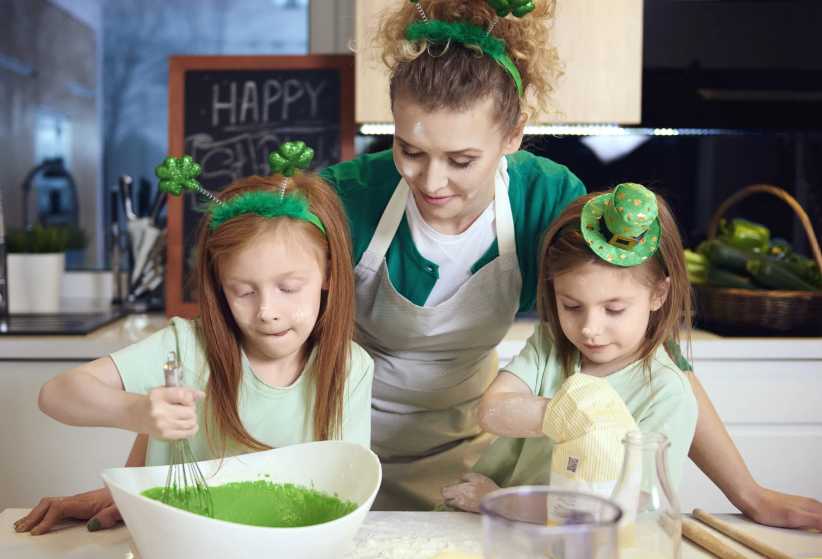Some children would rather talk and move than eat. They tend to be “built like a stick.” With today’s emphasis on the prevention of childhood obesity, kids who are too thin often escape notice.
Being underweight often appears preferable to being overweight, but the reality is that being too slender has its own risks and repercussions. For example, underweight children may be prone to infection due to easily compromised immune systems.
Is your child underweight?
Parents are not the best judge of whether their child is too thin, according to Rachel Saccaro, DO, a pediatrician with Central Medical Clinic in Chicago. She suggests asking your pediatrician, who charts their weight and body mass index every visit. The BMI takes the child’s height, weight, gender, and age into consideration.
“A BMI of less than five percent is considered underweight,” she explains.
The causes of underweight kids
There are three main categories for poor weight gain, explains Dr. Saccaro.
“Too few calories in, not absorbing enough calories, or using up too many calories. The simplest way to fix this the first category,” she says.
She says malabsorption of calories may be a gastrointestinal problem like inflammatory bowel disease or celiac disease. Chronic diseases such as asthma, heart condition, thyroid problems, or infection could cause the child to burn too many calories.
“The causes often differ depending on the age of the child. For example, in infancy, the cause is more likely to be underfeeding or feeding difficulties, whereas a teenager might have an eating disorder or depression,” says Dr. Saccaro, who is the mother of both a tween and a toddler.
Some of the more common symptoms of an eating disorder are interruptions in the menstrual cycle, fatigue, depression, and an irregular heartbeat. Children with eating disorders may appear anxious at mealtimes or prefer to eat alone. Another psychological cause of underweight can be excess stress, which may cause a lack of appetite.
Finally, your slim child’s weight and body shape are also influenced by her “lean genes,” causing a higher-than-average metabolic rate.
If your child is built like a stick
Taking vitamins may not make a difference for your child, but there are other things that can:
• Make sure your child is eating three meals and at least two snacks per day. Keep high-calorie but unhealthy foods, like rich desserts or French fries, to a minimum.
• Add avocado to salads and sandwiches or turn it into guacamole.
• Have her snack on a handful of nuts, a wedge of natural cheese, or some trail mix.
• Top bread with seasoned, mashed avocado or nut butter, or dip it in olive oil.
• Make shakes and smoothies with fruit, 100-percent juice, and yogurt or milk.
• Add dry milk powder to foods like mashed potatoes, cream soup, and shakes to boost calories, protein, and calcium.
• Use milk in place of water in oatmeal, soups, and sides.
• Encourage plenty of active outdoor play to stimulate the appetite. Swimming, in particular, makes people extra hungry.
For serious cases, get to the root of the cause of a child’s underweight.
Regardless of the cause, it is usually a team effort to ensure the child grows and thrives. It is often helpful to talk with a dietitian, social worker, developmental specialist, and support groups, depending on the reason for malnutrition.
Christine M. Palumbo has taught in the nutrition program of Benedictine University since 1994. Contact her at Chris@ChristinePalumbo.com. Her Facebook page is Christine Palumbo Nutrition and her Twitter handle is @PalumboRD.
Bubble tea
Serves two
Translucent pearl tapioca creates the “bubbles,” making this a fun beverage for kids to drink. You can substitute soy, almond, or rice milk for the dairy milk.
INGREDIENTS:
1/2 cup large Chinese tapioca pearls
1 cup crushed ice
1 cup chilled black or green tea, decaffeinated if desired
1 cup lowfat milk
2 tablespoons sugar
DIRECTIONS: Cook tapioca in three and 1/2 cups of water for 30 minutes, then leave in warm water for another 30 minutes. Drain and rinse in warm water. Add the sugar and toss. Divide tapioca between two large glasses. Mix together remaining ingredients and shake together or place in blender. Pour mixture into the two glasses of tapioca pearls. Serve with large straws.
NUTRITION FACTS: 250 calories, 53 grams carbohydrate, 5 grams protein, 1.5 grams fat, 10 mg cholesterol, 70 mg sodium, 19 grams sugar, 150 mg calcium.




















